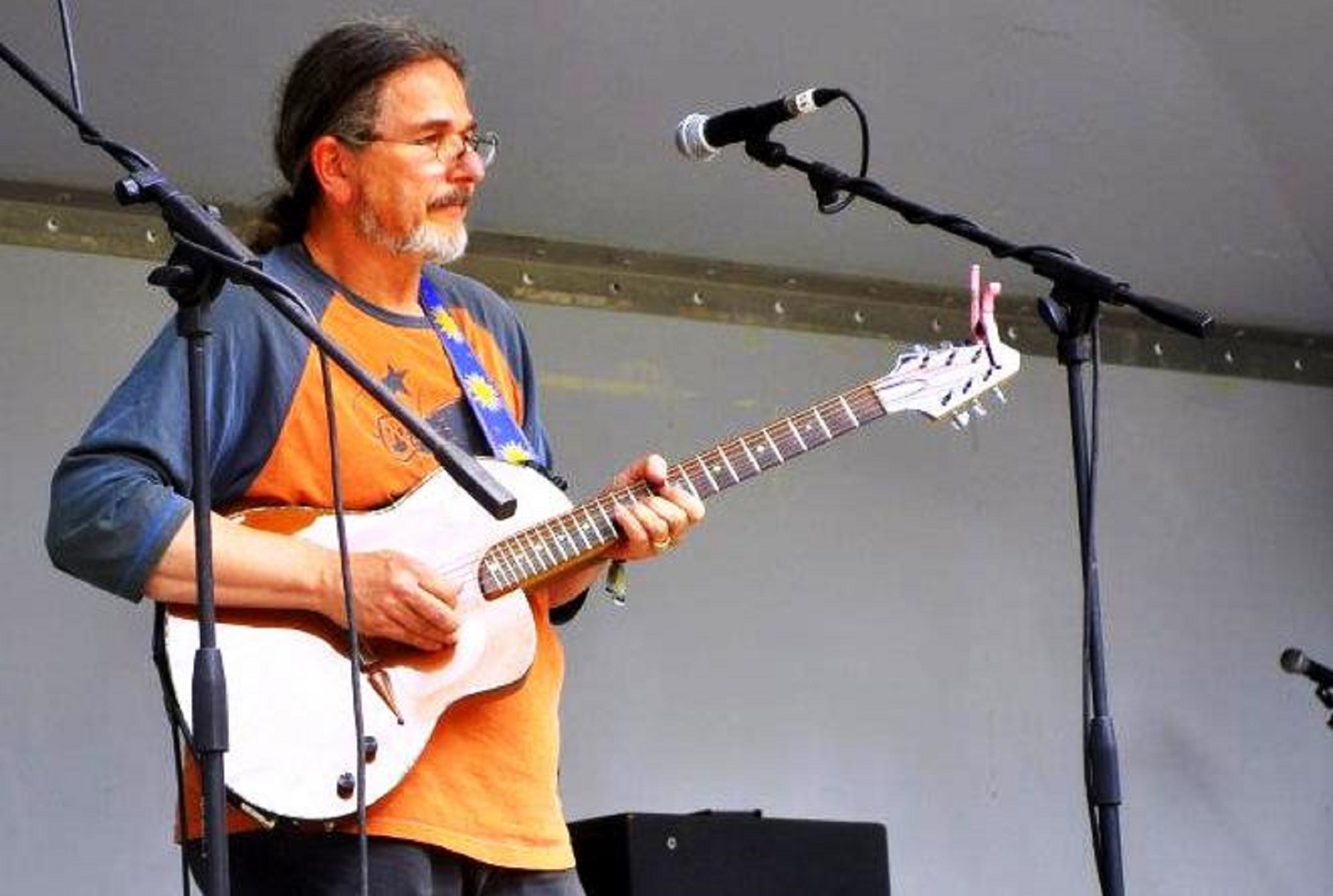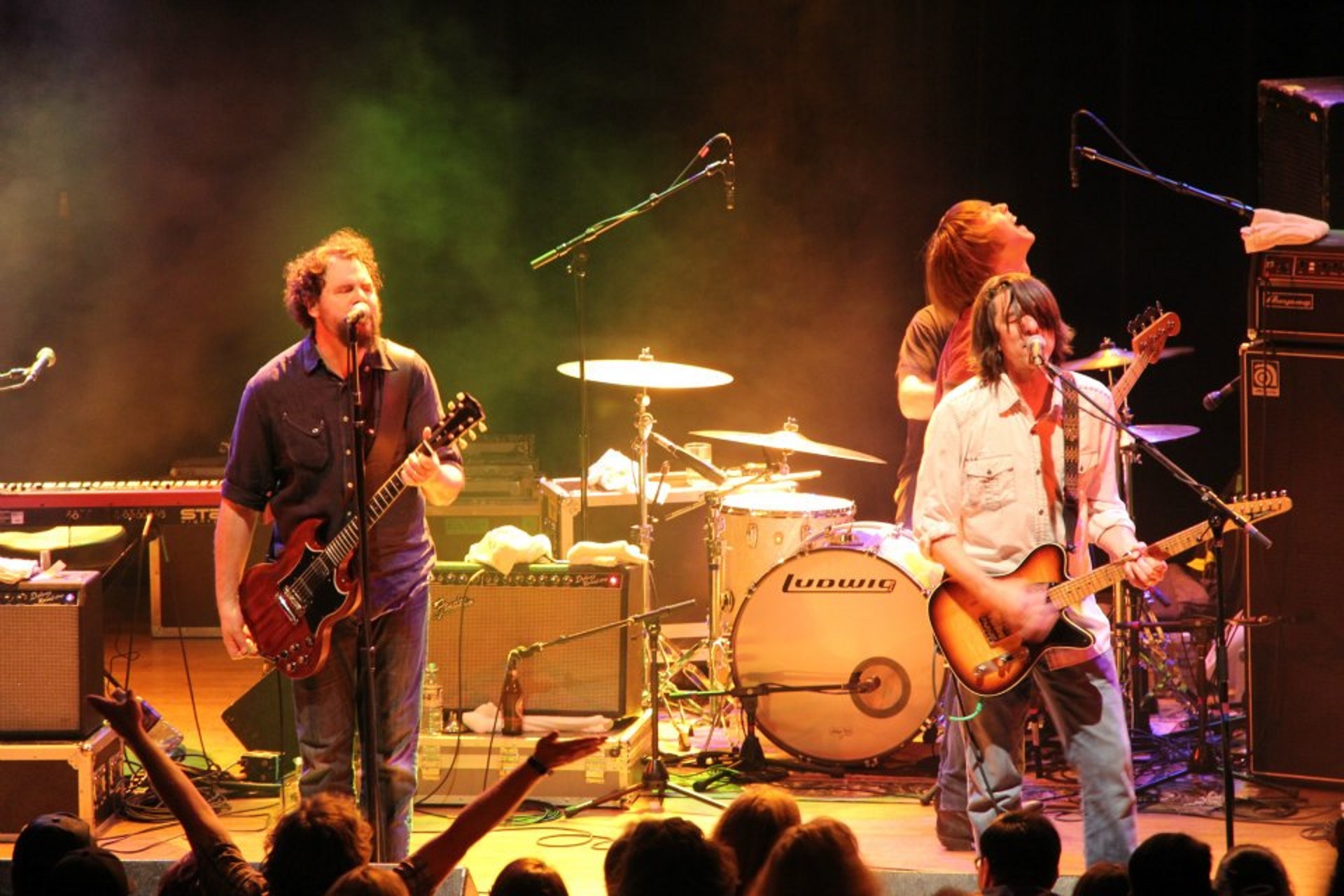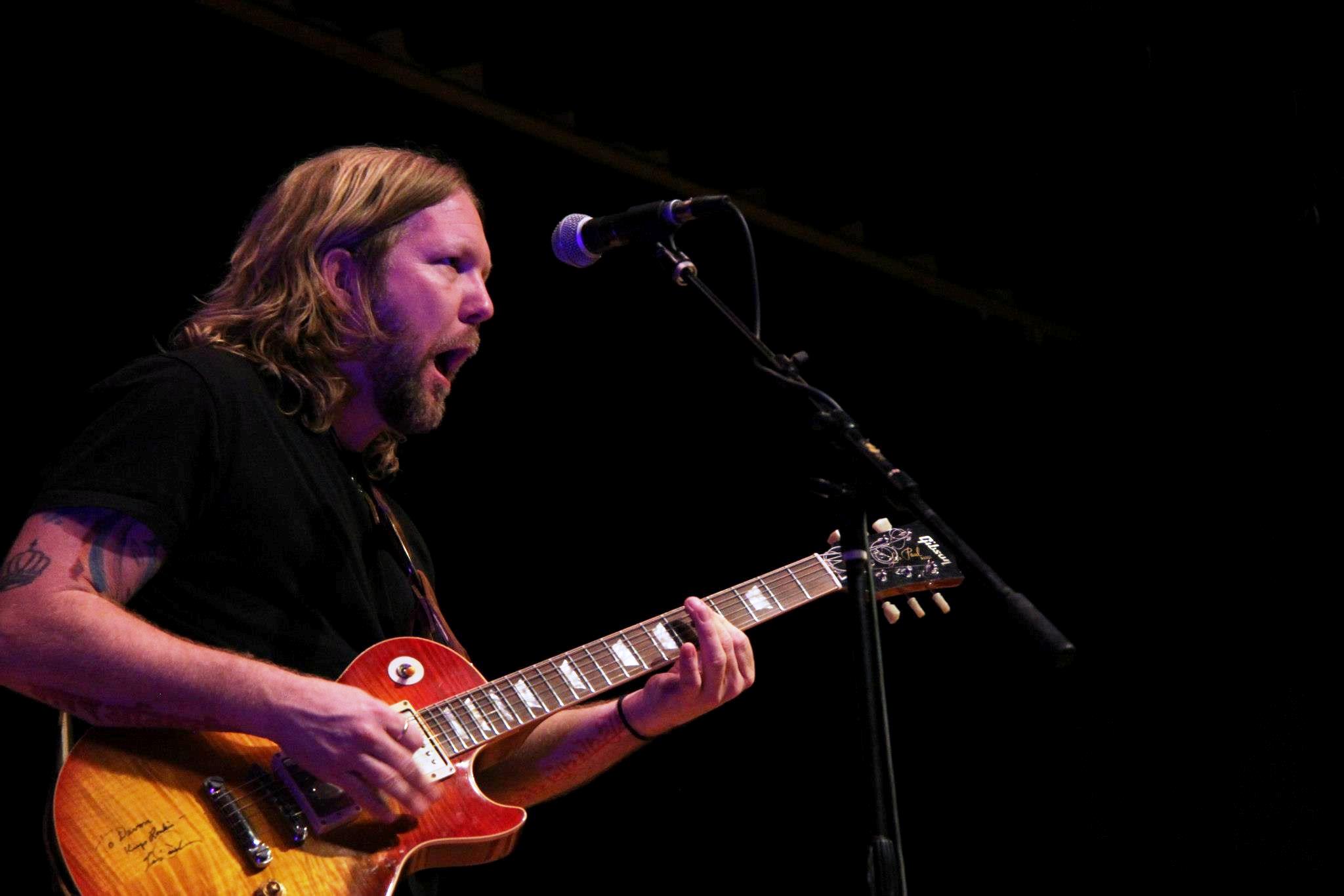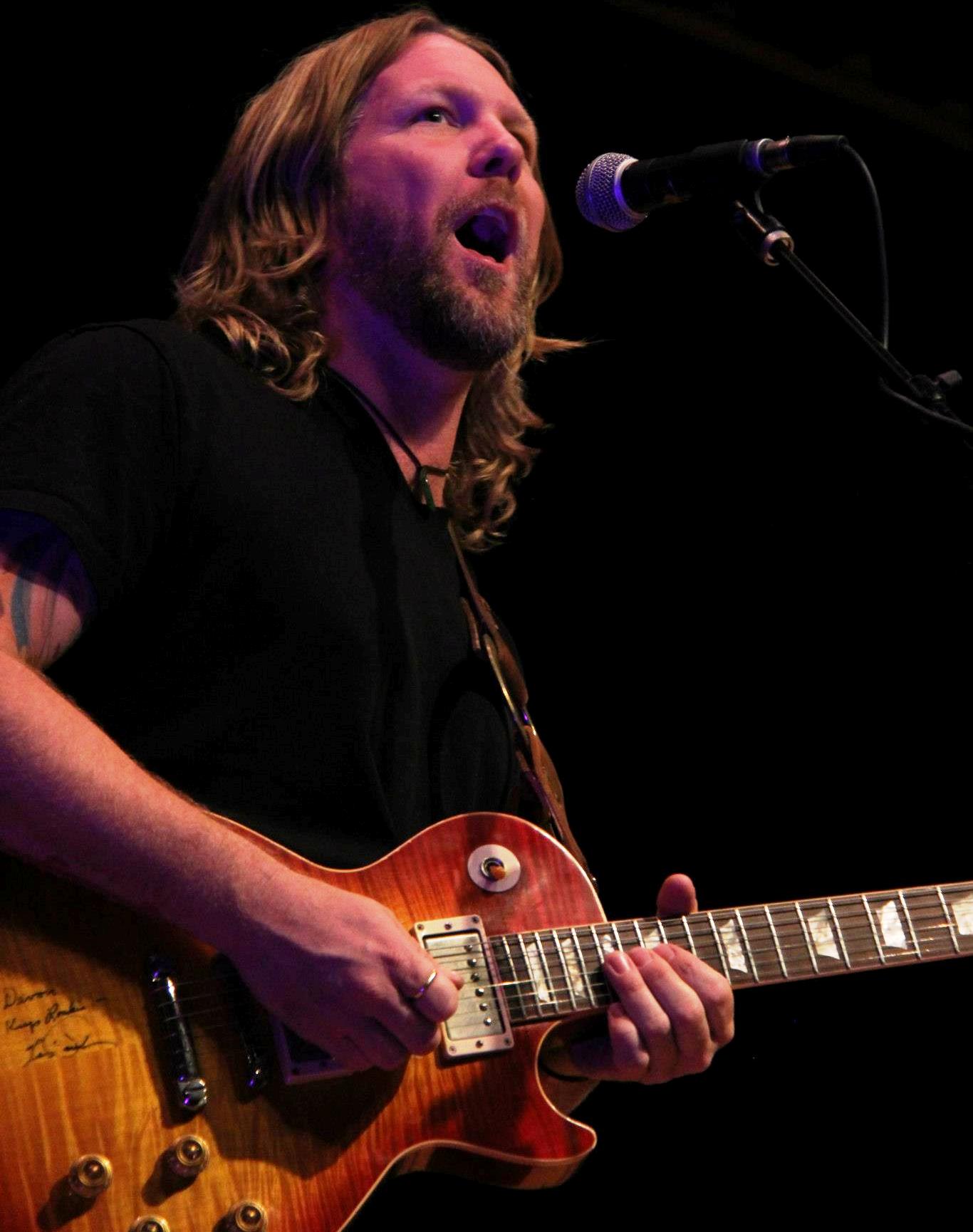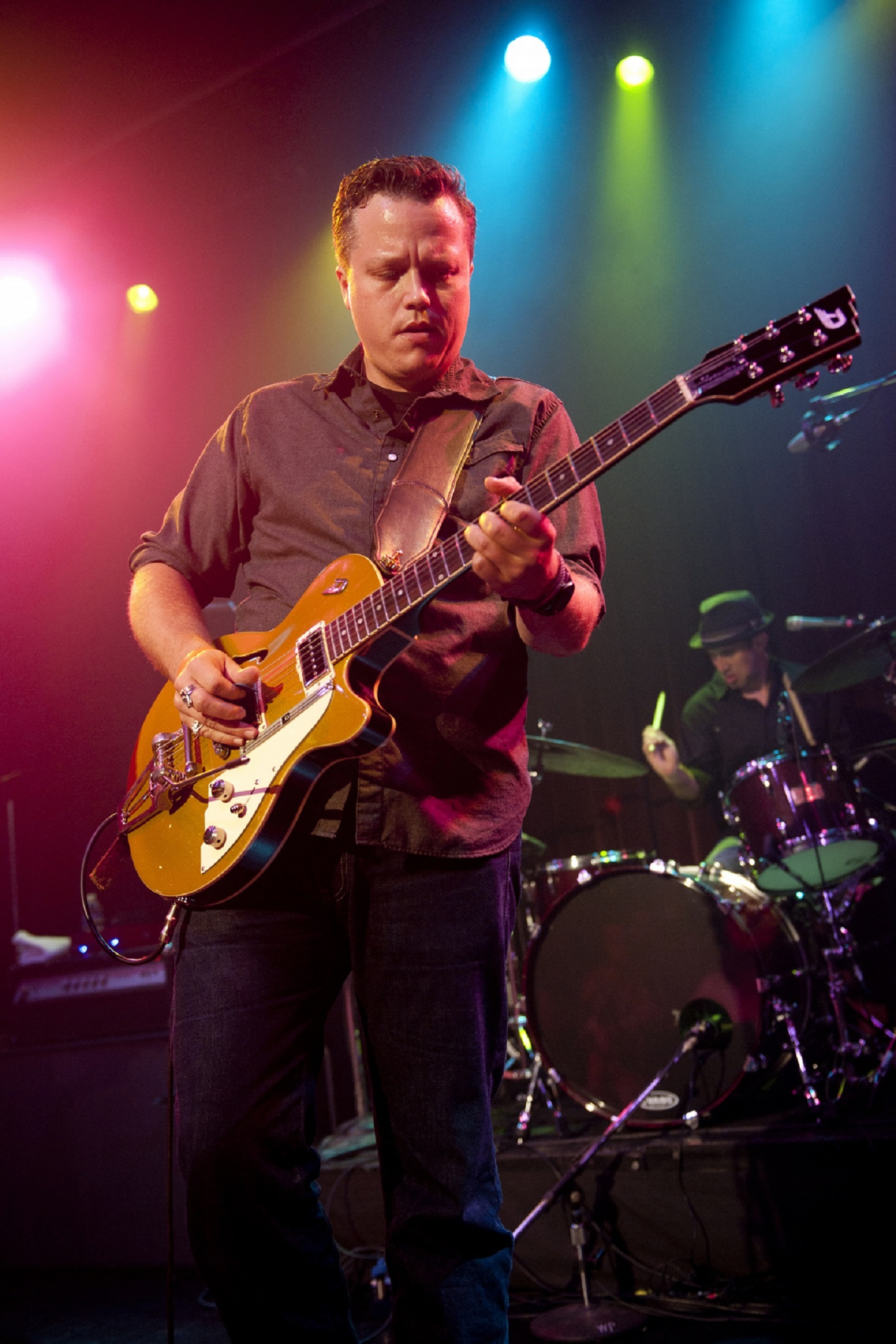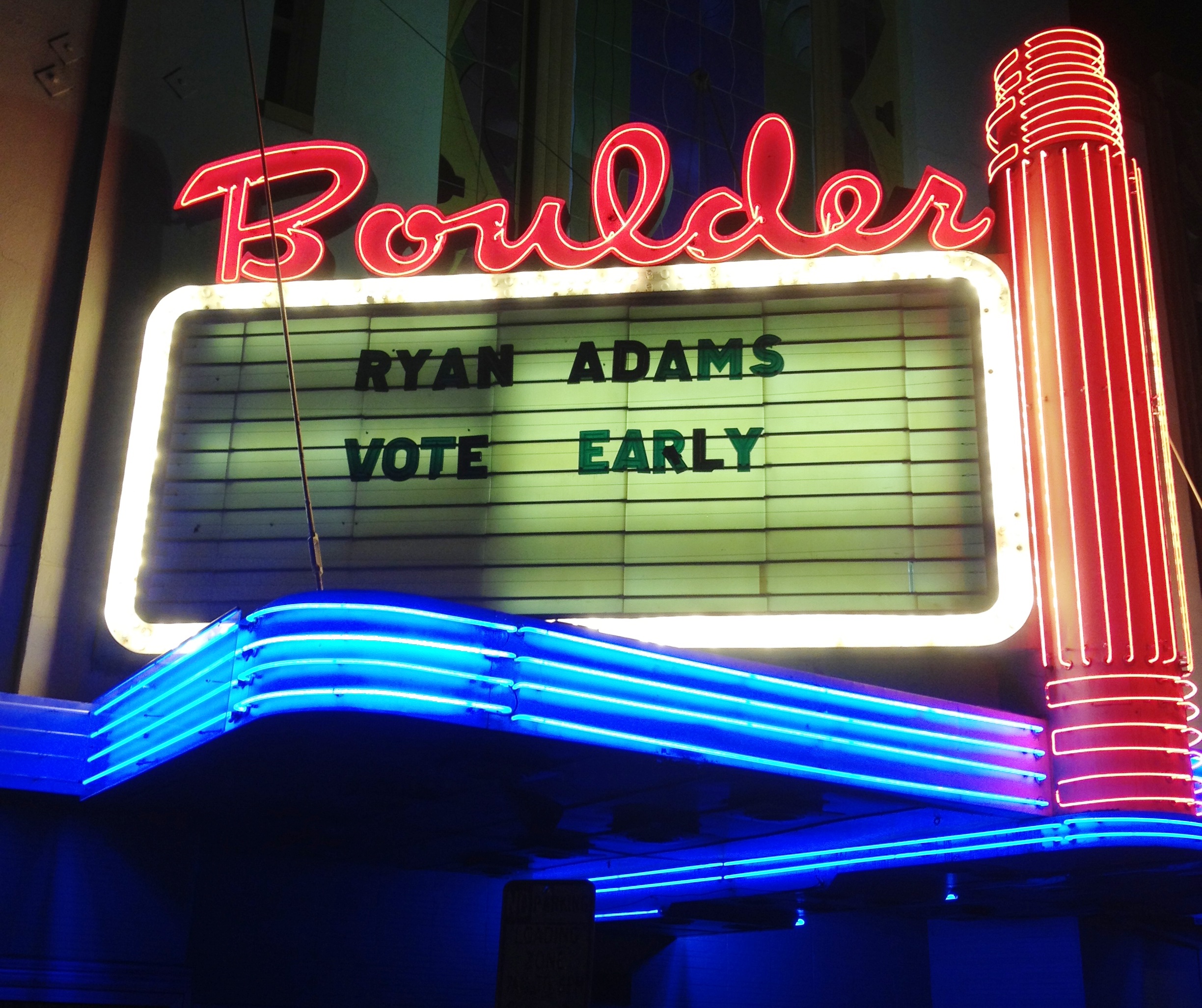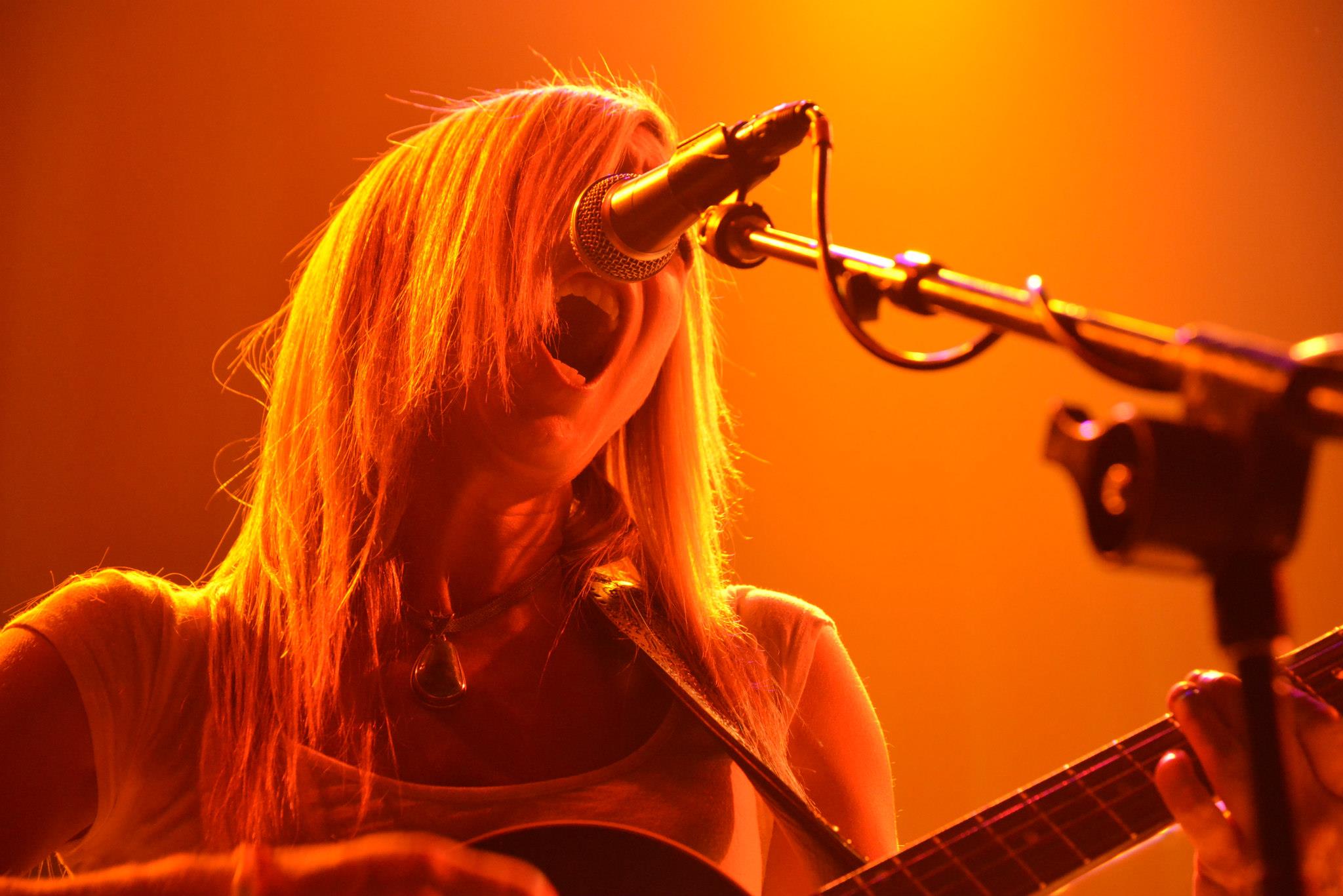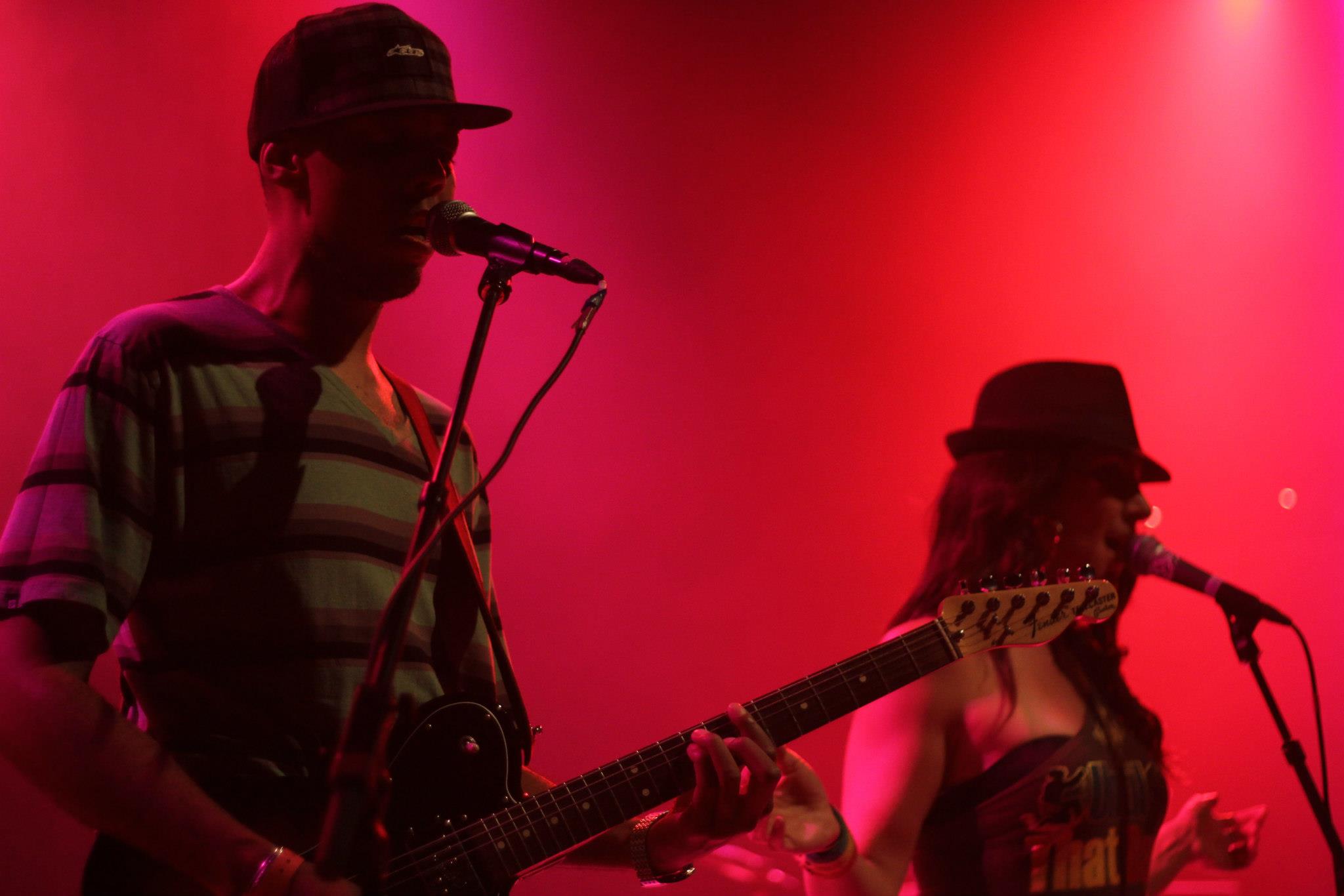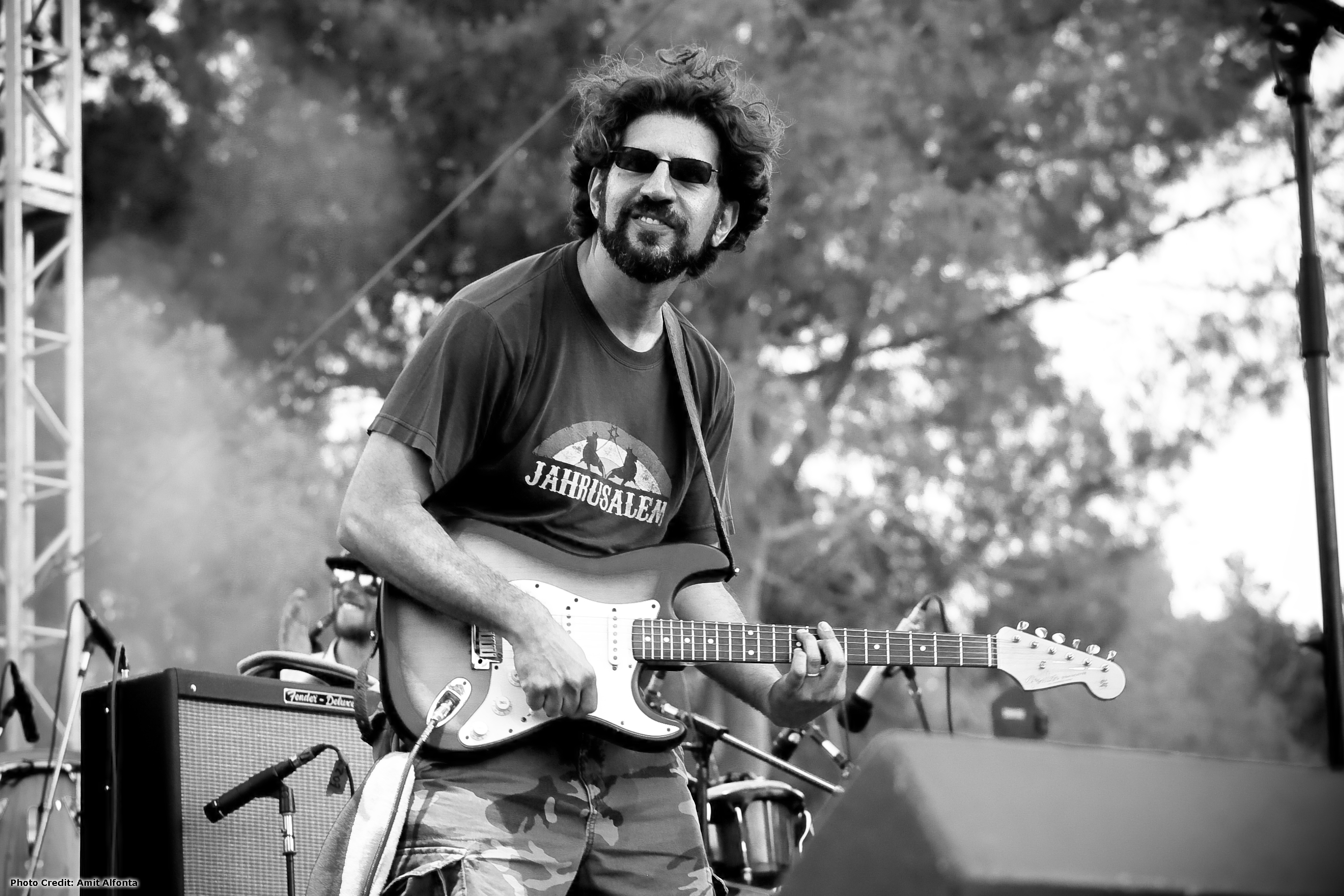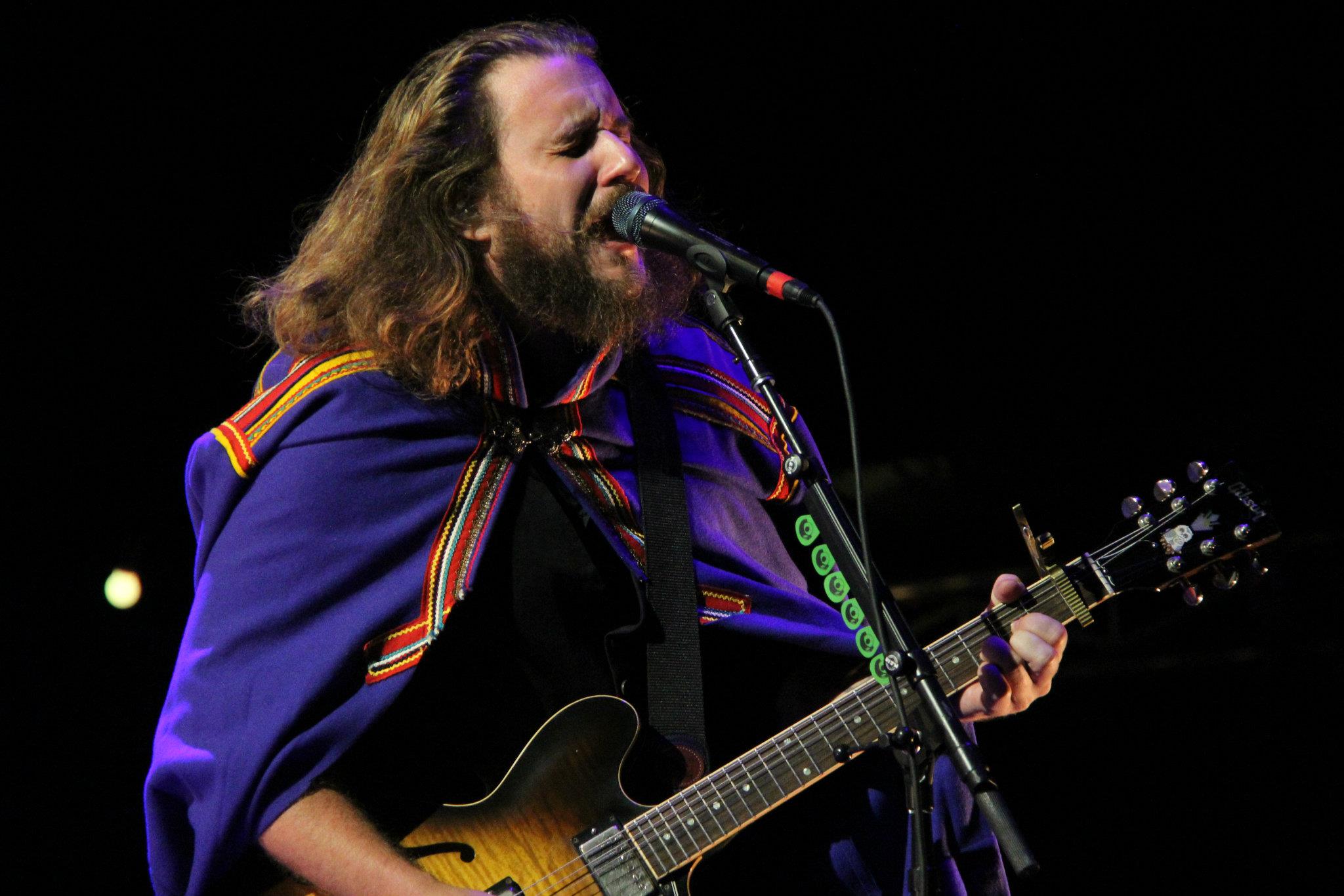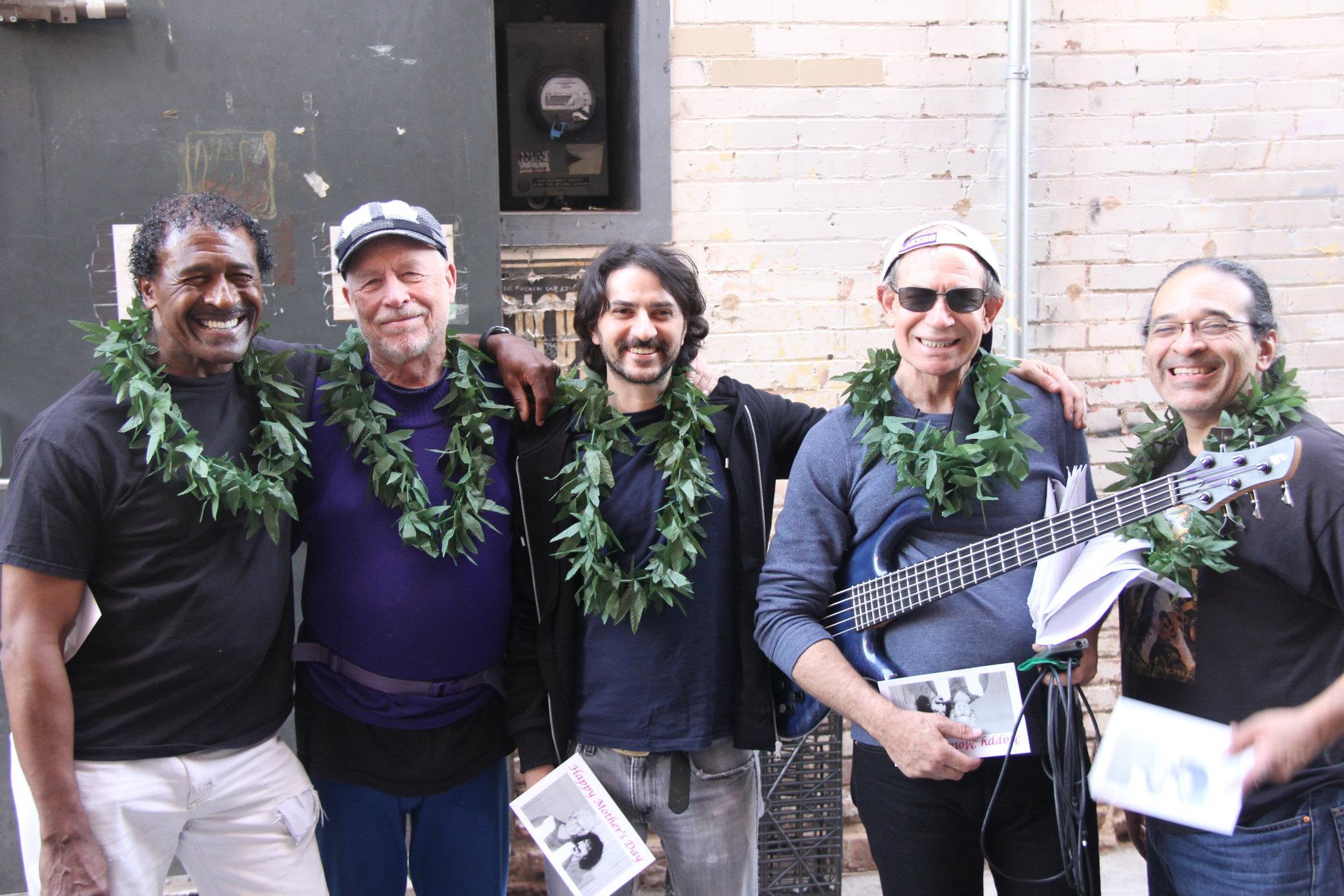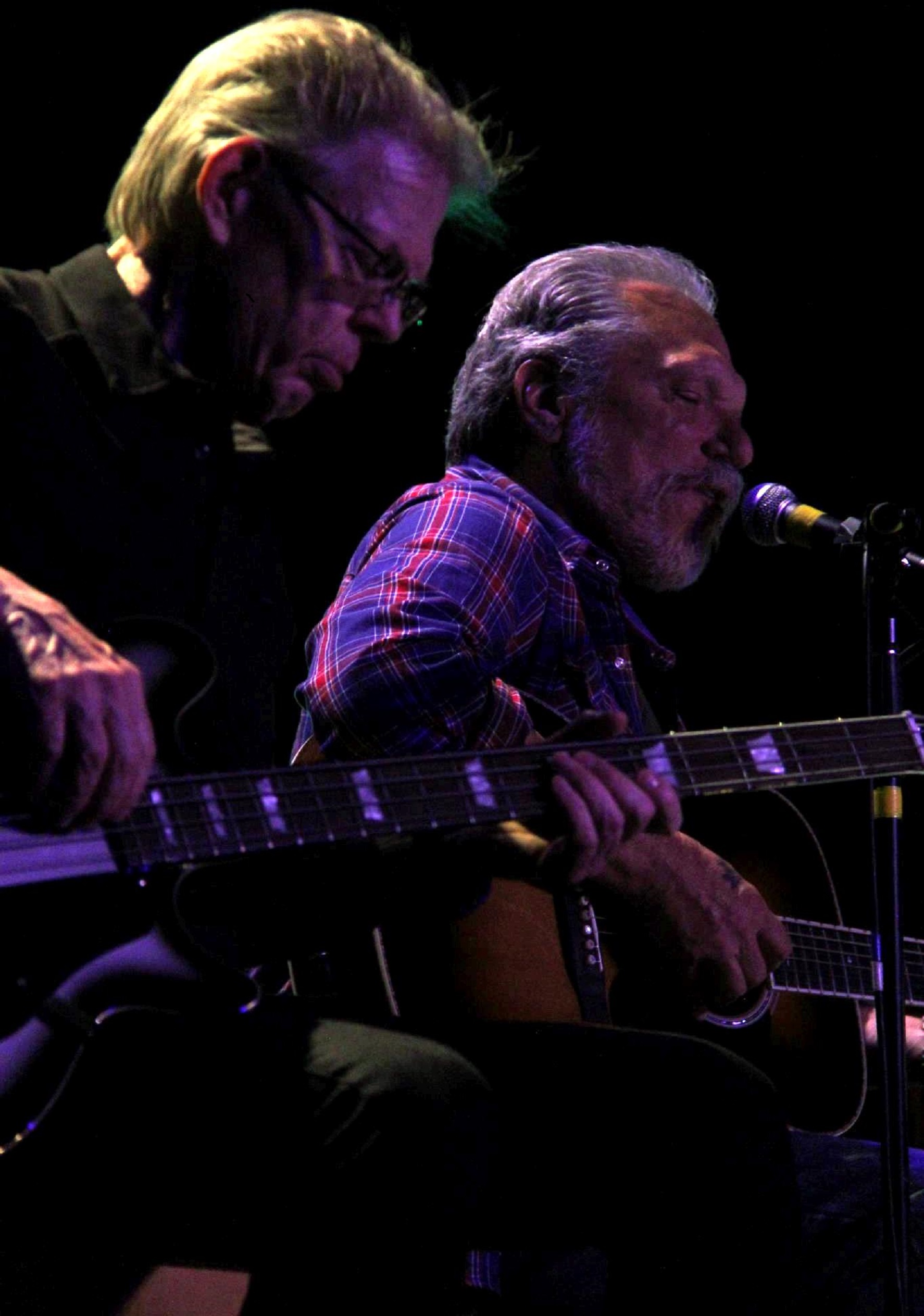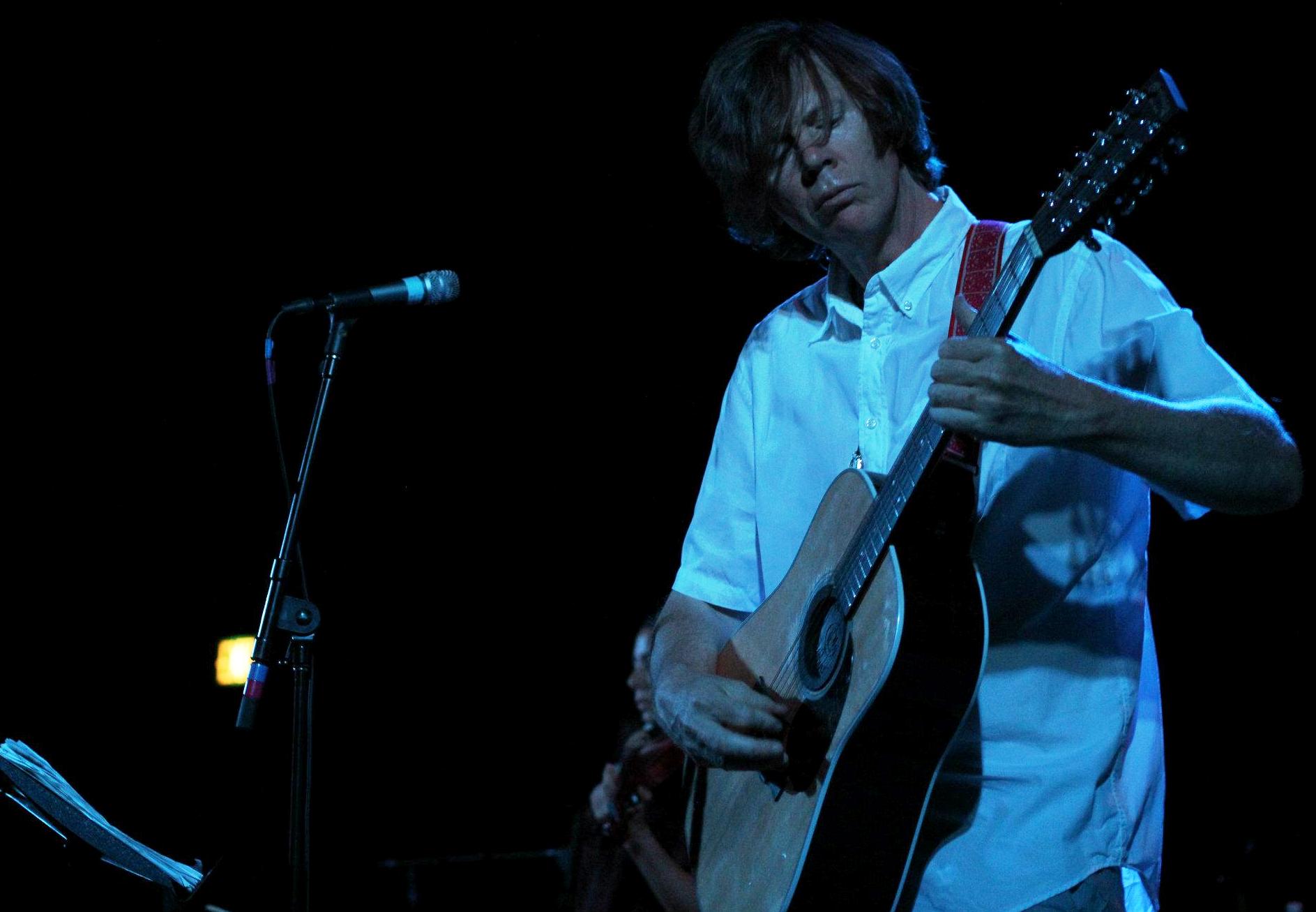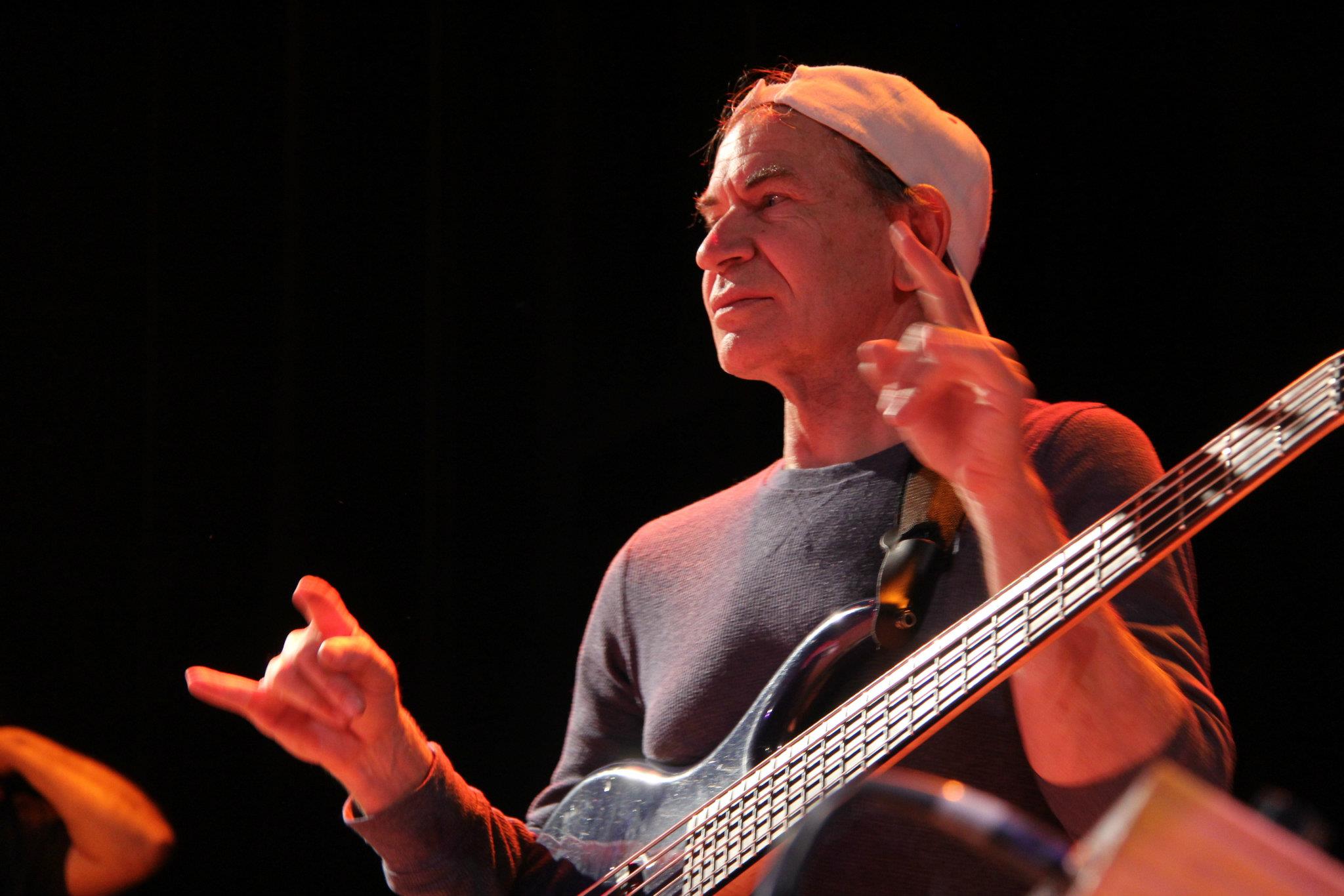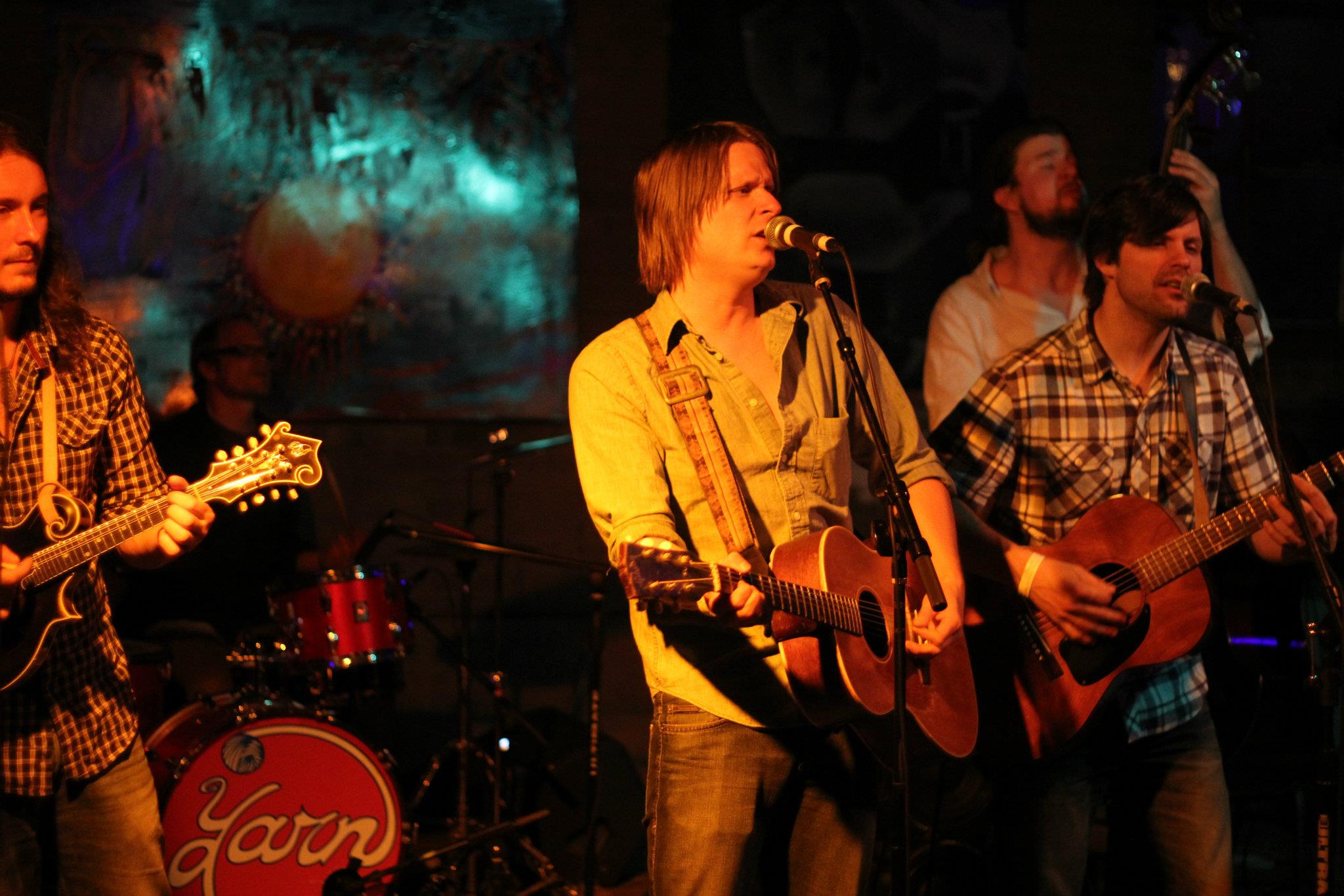Grateful Web recently had an opportunity to speak to musician, songwriter and music journalist, David Gans. David is the host of the weekly syndicated radio show The Grateful Dead Hour, co-authored the book Playing in the Band: An Oral and Visual Portrait of the Grateful Dead and this weekend David is preparing for the annual Berkeley based KPFA Dead Marathon, which will be streamed on gdradio.net, nugs.net & kpfa.org.
GW: This is Dave Papuga with the Grateful Web and we are simply delighted to introduce you to our guest this morning. In addition to his journalistic accomplishments which include hosting The Grateful Dead Hour and Tales from the Golden Road on Sirius XM Satellite Radio, and authoring several books and album liner notes, this gentleman is also an accomplished musician and songwriter. While the majority of the general population may not know him from Moses, to the large counterculture of Grateful Dead fans, he is like our Walter Cronkite. Ladies and gentlemen, will you welcome please, David Gans. How are you doing today, David?
DG: I’m doing well, thank you. How are you?
GW: I’m doing great, thank you. David, I’d like to start off by saying that it’s great to see you out playing music again. Your initial path, in your teens and early 20s, was a musical one, then you switched gears into journalism, and now you have come full-circle with your music—
DG: You know, I never really stopped doing music; I just found all these other interesting, music-related things to do that would help pay the rent. I’ve been a musician for more than 40 years, but the other stuff was also really compelling. My lives all fit together amazingly well. I do a lot of listening for my radio shows when I’m out on tour playing my own stuff, and I hear lots of music, and bring home music to play on the radio, and being in control of my own syndicated radio show allows me the freedom to adjust my schedule, so I’m just an unbelievably lucky guy.
GW: Your life really is an amazing story. There’s always been the key component of music. So, you just wrapped up playing some shows in Arizona and New Mexico this week?
DG: Yes,
GW: Were those solo shows?
DG: Yes. I played in Phoenix and Tucson with some local Grateful Dead bands; I played in Phoenix with two of them—Top Dead Center and Xtra Ticket—and then I went down to Tucson and played another show with Top Dead Center. Then I went up to Flagstaff on Sunday and played a solo show—a house concert. Then I went out to Albuquerque and took part in a conference about Grateful Dead music with lots of academics, and played a house concert for them. Then I played a house concert for Jams of Enchantment in Albuquerque. Then I headed for home and stopped at the Orpheum Theatre in Flagstaff again on Sunday to do my live broadcast of Tales from the Golden Road on Sirius XM, and then drove home on Monday.
GW: So you’re staying busy. One of the shows you mentioned was a listener appreciation show for Jams of Enchantment. Can you give us a little background on the organization?
DG: I don’t really know much about them. I’m friends with a lot of people in Albuquerque, I’ve been playing there off and on for years. I contacted Jay Steinberg, who runs a gallery called Birdland down there in Albuquerque and asked him if he had any ideas on where I might perform in town, because last year I did a show for J.O.E. that was a club date with Top Dead Center, and they asked me to do a house concert for them instead. I don’t know much about the group. It seems similar to the Las Vegas Jamband Society. It’s a bunch of freaks in a given town who banded together to form a club so they could bring the kind of music that they love into town. So, they’d go to a promoter and say, “So and so’s coming through, and we’d like you to book them, and we’ll attend the show.” It’s sort of an association for fans of certain kinds of music to bring what they like into a city, and they were kind enough to invite me to be part of their event on Saturday.
GW: Lets take it back to the early days, pre-journalism. You’re 18, 20 years old, living in the Bay Area, playing music, back in the early 70s…
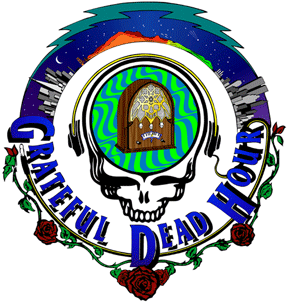
DG: I grew up playing music. My parents put a violin in my hands when I was about six, and then took it away from me a few days later. (laughs) Then they gave me a clarinet instead. I played clarinet all through grade school and junior high and into high school. And then, when I was 15, I borrowed my brothers guitar—he taught me some chords, and I set some of my tortured, teenage poems to music, and he taught me how to play them. So I became a songwriter at the exact moment that I picked up the guitar. I was really into original music from the beginning, and I played my first gig the week that I finished high school, when I was 16 in San Jose, and then I’ve basically been a working musician, on some level or another, ever since. Every job I’ve ever had was related to music in one way or another, except for maybe one when I was a kid. I worked for BASS (Bay Area Seating Service) Tickets out here in San Francisco, which was a great way to get concert tickets and stuff like that, and then I started freelancing for music magazines in 1976, but all along, I played music. I played in what they called, “the steak and lobster circuit,” when I was a kid in the early 70s, playing Crosby, Stills and Nash and Jackson Browne and stuff like that, Cat Stevens songs, and all, then I got turned on to the Grateful Dead in 1972 and that just changed everything. It really expanded my awareness of music and what it could do. I’m a Deadhead, obviously, but I never became one of those people who didn’t care about anything else. I never went on tour. I was always into the Grateful Dead, but I was also interested in the context of other music, and I was always composing my own original music as well. These things just went hand in hand. I started writing for music magazines, but I always had a band here in the Bay Area, so I was using the journalism stuff as a way of enriching myself and learning more about music. I got to meet lots of my heroes: I interviewed Fleetwood Mac, Leo Fender, Les Paul, Rod Stewart. I eventually got to meet, and have a journalistic relationship with the guys in the Grateful Dead, as well. So, it all just fit together really nicely. In 1997, I started getting offers to come out and play music festivals elsewhere (out of the Bay Area), and that led me to become a national touring act. Before that, I just stayed home and worked on my radio shows and played locally. But I decided to go for it when I was a grown-up, and I travel for about a quarter to a third of my year, and I’m basically just having the time of my life.
GW: How did you get started in journalism? Do you recall your first assignment?
DG: I was always a writer when I was a kid; I was always writing stories and stuff like that. When I was in college at San Jose State in 1970-71, I wrote record reviews for a local, underground paper called The San Jose Red-Eye, and in ‘76 a free music magazine started here in the Bay Area called BAM (Bay Area Music) Magazine. A friend of mine was involved in a competing publication and asked me to do some writing for them, and I did that, but that magazine folded pretty quickly. I took my unpublished pieces to BAM and joined their staff and became a regular contributor, and eventually a contributing editor. That was a lot of fun, and I earned part of my living from that, and part of it from music. Then I started writing for sort of a trade publication called Mix Magazine, which was basically a recording studio magazine for professionals. I started writing music-related and technical pieces for them. Then a friend of mine introduced me to an editor at Record Magazine. Rolling Stone started a music only magazine in 1981 called Record and I became a contributor there, and wound up being there for the life of the magazine. In 1986 I wound up as their Senior Editor on the west coast. While I was doing that, I got an assignment to write about the Grateful Dead for Rolling Stone, and got sent to Jamaica on a junket to a music festival—The Jamaica World Music Festival. I was there with the Grateful Dead and Bobby and the Midnites, and there I met Peter Simon, who is a legendary music photographer. He was working on a book about the Dead. I hung out with him and made friends with him and I thought maybe I’d see if he was interested in a few of my photos for the book. But a few months later, Peter and his editor called me and asked me if I’d be interested in taking over responsibility for the text of Peter’s book, because the writer they were working with had dropped out. So, without ever intending to, I got this invitation to write a book about the Grateful Dead, and that was published in 1985. It was called Playing in the Band: An Oral and Visual Portrait of the Grateful Dead.
GW: One of the most iconic books about the Grateful Dead.
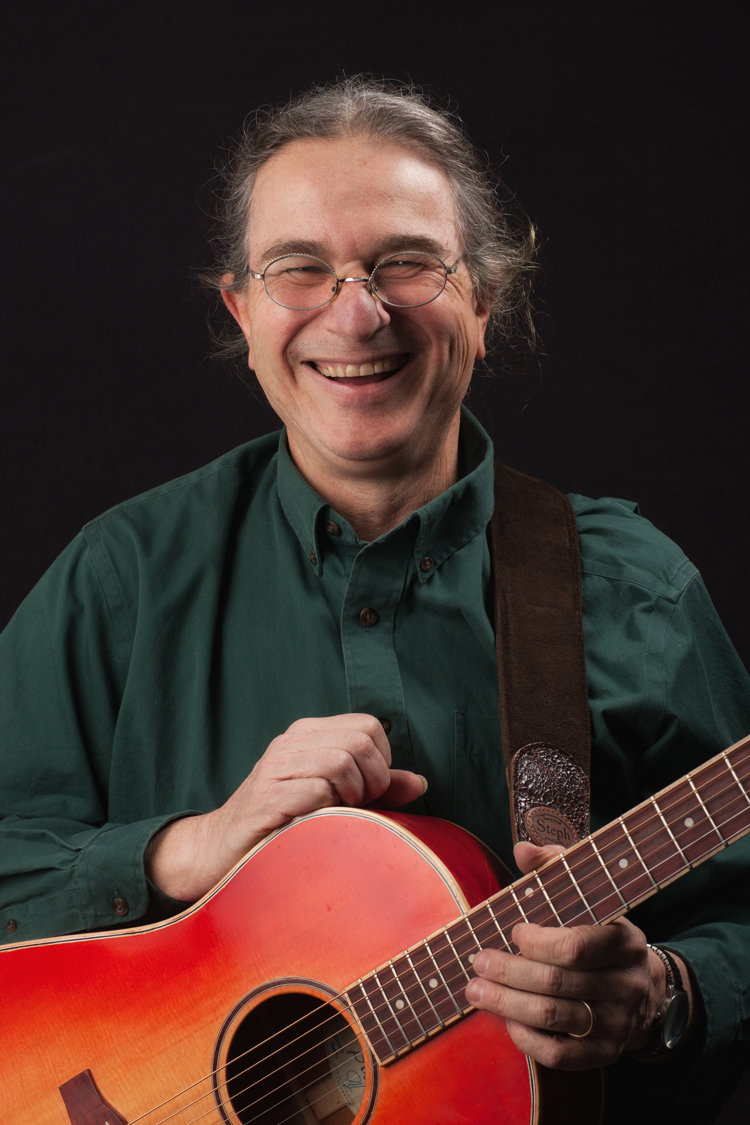
DG: I sure am proud of it. I went on a local radio show here in San Francisco—KFOG—they had started The Deadhead Hour as one of their weekly, specialty programs, and I went there as a guest to promote my book, and I had so much fun producing a piece for them, that I wound up becoming a part of a group of Deadheads that were helping provide music for the show. The host of that show was a wonderful DJ named M. Dung who wasn’t really a Deadhead and he was kind of overworked at the station because he was doing the “Morning Drive” radio show. They wound up asking me to take responsibility for the program, and I had so much fun doing that, that I was happy to take over doing the show, and I started getting calls from other radio stations: a station in San Diego, WNEW in New York, WHCN in Hartford, Connecticut, asking me to syndicate the show. So I went to the Grateful Dead and said, “Hey, there’s this opportunity here to syndicate the show. What do you think?” They said, “Go for it.” So, again, without ever making any plan, I wandered into a really cool gig doing Grateful Dead radio, and here I am coming up on 28 years later that I’ve been doing that as my day job. Craziness!
GW: We definitely have spent many a night listening to The Grateful Dead Hour, especially back in the pre-internet days.
DG: I have to tell you, man, one of the absolutely sweetest things about my current life as a traveling musician is running into people that tell me they’ve been listening to that radio show for 25 years…or that they listened to it as kids, or whatever. It’s such a gratifying thing to know that I’ve been so effective in promoting the Grateful Dead.
GW: You were key, especially at that point in time. For instance, I was able to get on the computer and listen to the house party you just played within a couple of days of you playing it, but it just wasn’t like that back in the day. We were fortunate, in my circle of friends to know a guy who was a little older and was a taper, so we had access to tapes, but you were such a pillar of information. There was nothing else like that. You’d read books…and it was just a slower information gathering process back then, but Deadheads knew that, once a week, we could tune in for an hour a get—in addition to all these great, live shows you played—you’d talk about the shows, give us details on the shows and also introduce us to all of these other great bands that were affiliated with, or in that same genre as the Grateful Dead. You were really just…essential—
DG: It really has been a pleasure and a privilege to be able to do that.
GW: Thank YOU! So you started with The Grateful Dead Hour in ’85?
DG: Yes, February 18th, 1985. In fact, gee, I just didn’t notice it going by, but Monday was the 28th anniversary of my first radio broadcast.
GW: Happy Anniversary.
DG: Thank you!
GW: I read that in 1988 you had to enter into a contract with Grateful Dead Productions and a radio syndicator, so you essentially got incorporated. Was that a result of the requests for syndication?
DG: I had been distributing the show myself starting in ’86 or ’87. I had an opportunity to go with a national syndication company, and in order to do that I had to enter into a contract with the Grateful Dead and the syndicator and that required me to incorporate, so that was kind of fun. I had been using this motto…one time I was high on acid and I came up with this little phrase, “Truth and fun,” and I said that if you have those things, you have balance in your life. The phrase just sort of stuck in my mind after I came down and I thought, “If you have those things in balance in your life, you’re probably doing okay.” If you’re not having any fun, that’s not good, and if you’re not telling the truth, that’s no good either. So I named my company Truth and Fun, Inc. It’s just something I had to do, to do business with the Dead. It’s convenient to be incorporated in some ways. It means that every ticket I buy, every album I buy, every meal that I have when I’m on tour is all (tax) deductible.
GW: Personally, as a writer, the crown jewel for me is conducting interviews.
DG: Yeah, me too. I love it!
GW: You’ve dealt with lots of great musicians over the years. Is there one interview that you’ve done that you’re really proud of, or have felt fortunate that you were able to conduct?
DG: I would have a hard time narrowing it down to a small number of them. Blair Jackson and I interviewed Jerry Garcia together on two nights in 1981. That was really one of the highest points of my life—getting to talk to Jerry like that. He was such an easy interview, and we covered so much ground. I’ve seen that interview quoted so many times in academic papers and other stuff. Clearly, it was a really seminal document in understanding the Grateful Dead. Also, for some reason that I still don’t know, Owsley Stanley agreed to do an interview with me for my second book, Conversations with the Dead. Bear was obviously a legendary character—soundman for the Grateful Dead and just an amazing guy. I knew him from being part of the Grateful Dead scene, and I don’t know why he decided that he trusted me enough to sit for an interview, but he came to my house in January of 1991 and we spent six hours together talking. The fact that he was willing to talk to me so deeply and for so long was just a huge honor.
I interviewed Neil Young in 1982 and Phil Lesh also. In ’81 I interviewed Phil Lesh and he had not been doing press. The publicist for the Dead at the time was a wonderful man by the name of Zohn Artman, who has since passed away. I think it was Zohn who talked Phil into doing an interview with me. He sat down with me and told me his entire musical history and then talked about the music that he loved, and it began the basis of a friendship. He trusted me and he understood that I came to my journalism as a musician, and so, what I was bringing to my writing was real…a better knowledge of how the Grateful Dead music works than most journalists were able to give. So I think he related to me as a musician, and that’s why he was so forthcoming. So, just right off the top of my head, those four I would probably say are the peaks of my journalistic existence.

GW: With the Owsley Stanley interview, that’s definitely a …Owsley was, and continues to be a legend and an enigma. There’s definitely a lot to read about him if you dig, but he was one of those people, a key component, but seemed to prefer his privacy…
I noticed you have a couple of those six hours that are available for the general public on Archive.org. Do you have any plans in the future to make more of interview available?
DG: Owsley’s family has started The Owsley Stanley Foundation, and they released another tape from Owsley’s collection a few months ago. It was a Janis Joplin concert from…or Big Brother concert from the Carousel Ballroom. They are planning to put out more music from Bear’s archive and we’ve been talking about making the interview available too. Things are moving slowly in that world, but that’s the way I want to have that whole interview available. I have to do it in contact with the family, and not just put it out there on my own.
GW: You’ve been in journalism for decades now. How do you feel that the advent of the Internet and blogs has affected the journalism trade, both positively and negatively?
DG: That’s a huge question. (laughs) The Internet has made it hard to make a living with intellectual property type stuff. On the other hand, it has also been a tremendous equalizer for musicians. I know a lot of journalists who are having a hard time finding jobs because the supply of content is so overwhelming and people are getting to expect stuff for free everywhere. Getting paid to write, and getting paid to play music has gotten harder. The music business is falling apart and the Internet is a key factor in that. But on the other hand, for independent musicians like me, the playing field has been leveled completely. Radio too. It’s harder and harder to get paid for a radio show because there are podcasts. There’s always been an oversupply of creative content. If a band will come and play for $50, then the band that wants to get $250 isn’t going to get the gig. There are always people out there publishing content for free and trying to figure out how to monetize it, so somehow revenue has gone way down in everything that I do, and yet, I’m still managing to cobble together a living. (laughs) The radio show struggles along, it’s hard to find stations that want to pay for it, so I wind up giving the show to small stations in Alaska and stuff like that. But, it’s good to be on the air, and somehow I manage to keep the doors open in my company. Again, I said the playing field was leveled—it means that I can go out and tour and play house concerts because I have access—I use Facebook and I have a mailing list with thousands and thousands of names, so I can market myself directly and not rely on mainstream media for radio airplay and things like that. You’ve just got to be creative, and there are ways to do these things. It’s not easy, but…
GW: Nothing worthwhile ever really is all of the time.
DG: Yeah. I’m doing fine. I actually had a great year last year in the music world, made decent money, and had lots and lots of gigs, so I really…I can’t really complain.
GW: It’s tough for the new generation of writers to look to a point when they can support themselves with their writing.
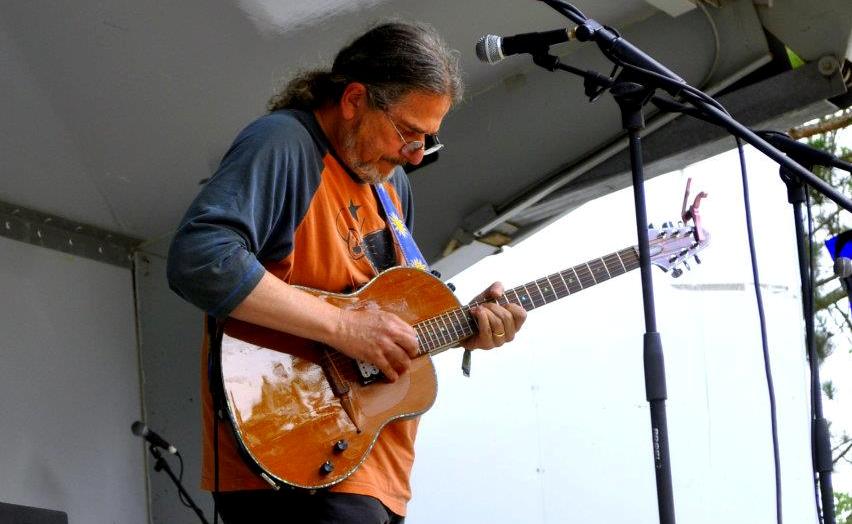
You now have a program on Sirius XM Satellite radio. How does your program on XM compare to The Grateful Dead Hour in its early days?
DG: When they started the Grateful Dead Channel (Sirius), I was hired as a consultant to help them with what to broadcast. I helped create the line-up. I said, “You’ve got to have complete concerts,” and I suggested that they contact David Lemieux, the Grateful Deads archivist about doing a daily feature, and I helped stock the library. Then, basically, they ripped all of the Dicks Picks and all of the albums and put them in a library, but I had to go through and get rid of some redundant stuff, and also have them…because they were ripping the tracks automatically, “China Cat Sunflower” would play, and then it would end abruptly instead of going into “I Know You Rider,” and I said, “We’ve got to jam those two together like they were—as God intended, because otherwise it’s just going to sound terrible.” So I did a little bit of housekeeping sort of stuff. A few months into the beginning of the channel, they have this idea to do a roundtable-type discussion, and I said, “If you’re going to do that, you’ve got to get Gary Lambert on board”. He’s an amazing resource, wonderful guy, great sense of humor, and a ridiculously rich memory—not just for Grateful Dead music, but for all sorts of pop-culture stuff. So, I flew to New York and we did the first show, with Gary and I co-hosting, and it went so well that they decided to make it a weekly feature. So what I do now for Sirius XM’s Grateful Dead channel is co-host with Gary this Sunday afternoon talk show from 4-6 pm Eastern time, called Tales from the Golden Road, and we just get on the air, and sometimes we have a guest, and sometime we just fly, and people call in and tell stories and stuff. It’s really fun, and people seem to enjoy it a lot, and sometimes we are able to answer questions for people, and get into little arguments about politics or about music. It’s been really enjoyable. Gary has been a great guy and a great co-host. The other thing I do is line up complete concerts for them. I’ll pull stuff out of the archives and put in a complete show for them and do a little sort of informal introduction. It’s a pretty straightforward gig at this point, and I started, recently—just to mix things up—we had a conference call with the bosses at the beginning of the year and we were wondering what we could do to spice up the channel. So I said, “Let me do a series of specials for you.” For example, we did one this week on the recent collaborations of Robert Hunter, the Grateful Deads lyricist. After Jerry died, he didn’t stop writing. He’s been doing amazing work: albums with Jim Lauderdale, he wrote an entire record with Bob Dylan, called Together Through Life, he’s done a lot of stuff with David Nelson, he’s been writing songs for Bruce Hornsby…so I produced an hour special saying, “Robert Hunter is still doing amazing work—listen to this,” and we played an hour of different tracks from different people, and we’re going to do part two of that for next month. Then I’m going to do one on the new Jerry Garcia Band live release from March 1st, 1980 that just came out—Garcia Live Volume I, and I have some other plans down the line. So, again, it’s just really fun to be a part of an all Grateful Dead channel, and the funny thing is, people used to say to me, “Hey, why don’t you start a 24/7 Grateful Dead channel?” I thought, jeez, it’s all I can do to come up with an hour of good stuff every week, I don’t want to have to do 168 hours of programming, you know? (laughs) In the content business, there used to be this phrase, “Shovel ware,” when you’re just pouring stuff out there and you’re not really articulating it or editing it very much, and I kind of thought that a 24/7 Grateful Dead channel would just do that, just shove things out there, but it turned out to be pretty cool. The playlist is automated—there are no DJs. It’s set up with different categories—the most important music gets played more often and then there are things—like stuff from solo albums and other people’s covers of Dead songs and things like that—so that stuff gets worked into the mix too. I don’t find it all that interesting to listen to 24/7, but there are a lot of people who do—they just listen to the Grateful Dead Channel all day long, and they are happy with it, so that’s fine with me. I’m enjoying being part of it, and trying to keep it interesting and informative—serve the music, get the people turned on to the good stuff, and it’s thoroughly enjoyable. I’m an incredibly lucky man.
GW: Absolutely. They’ve got the right guy for the job, so we are fortunate for that.
David, you’ve been more or less credited with encouraging GD bassist Phil Lesh to emerge from retirement following the death of Jerry Garcia. What was the vibe like in the years right after Jerry’s death and prior to Phil & Friends? I’m assuming there was definitely a period of mourning. Could you tell us what you witnessed and how you encouraged Phil to get back out there and keep playing?
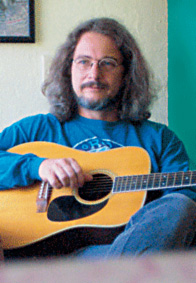
DG: It’s an interesting story. Bobby (Weir) was on the road when Jerry died, and RatDog just kept going. Mickey Hart has always been doing a million things, so he kept going. Kreutzmann, I think, went to ground in Hawaii, and Phil was not doing much musically—I think he sat in with Hornsby once or twice, and basically was kind of retired for a while, but he and his wife Jill started a foundation, The Unbroken Chain Foundation, they wanted to do work similar to what The Rex Foundation was doing. So I became part of that. My wife and I were on the board of The Unbroken Chain Foundation from the beginning, and in 1997 we were helping with that and I was also helping with a local venue. In Berkeley, there’s a wonderful dancehall called the Ashkenaz, and I’ve been a regular performer there since 1988. The owner of the club had been shot by a drunken patron—a terrible, terrible thing—and the community took over the club. We raised money and bought it from his estate, and reconstituted it as a non-profit. In 1997, while I was helping Phil with the PhilHarmonia and getting his foundation going, I also came up with the idea to buy a sound system for the Ashkenaz. I made an arrangement with Meyer Sound, makers of the best speaker systems in the world, and I asked them if they would be willing to give us a deal on a speaker system for the club, and accept the proceeds from a series of benefits. They were very, very kind to agree to do that. In August of ’97 we did the first one; we called it The Deadhead Community Center and basically, I organized a jam with a bunch of my musician friends and we were just going to play GD songs all day and the proceeds would go toward the speaker system. Because I was working closely with Phil on another project, I asked if he would come and sit in. I said, “It would be so great if you come and play a couple of tunes with us,” and he agreed to do it. That show sold out. Phil came and he stood there, at the back of the dancehall watching and he got this idea. He said, “I didn’t realize that this music was such a language.” I said, “We’ve been playing your stuff for years, and if you think this is cool, multiply it by a thousand, and you’ll know what we all felt like at a GD concert.” There were people all around that knew this music and spoke it like a language, and I think that’s where he got the idea to do Phil & Friends. He played “Scarlet Begonias” and “New Speedway Boogie” with us that day, and then asked me to put together some benefits for him to jam. I had this band at the time call The Broken Angels, where I was putting together different line-ups of musicians to play GD music at a club in the Bay Area. To help Phil with the Unbroken Chain benefit, I put together some concerts with The Broken Angels and put together bands for him to jam with. We did the first one on November 6th, 1997. We did another one—the PhilHarmonia event, which was his thing, on December 7th of ’97, and The Broken Angels were the house band for the after-party that night. So that night, after the Philharmonia, everybody came over to a hotel ballroom and we played and they had this gigantic feast, and Phil and Donna Jean and Bobby and Bruce Hornsby all sat in with The Broken Angels that night. Then, there was another Broken Angels benefit with Phil on December 27th of ’97, and we did another one on January 31st of 1998 at the Fillmore with Phil and Vince Welnick sitting in. So, by that time, Phil had gotten the bug to play again, I guess, and so after that he started doing Phil Lesh & Friends. He liked the idea of putting together different line-ups of musicians. So, I guess what he did with us inspired him to do it on his own level—a higher level—with musicians of his own caliber. People do ask me about it; they give me some credit for getting Phil off of the couch, and I’m happy to say, if indeed what The Broken Angels did inspired Phil to start Phil & Friends, that’s something to be proud of.
GW: It sounds like you created a model, and by bringing him into it, opened his eyes.
DG: Well, 15 years later, he’s still doing it, so what the hey?
GW: David, getting back to your history regarding your music, you said you never really stopped playing during what we could call your “journalistic period,” how much was your own music put on the back burner? Were you still writing songs?
DG: Yeah.
GW: And you are obviously an accomplished guitar player, so you kept playing guitar—
DG: I never stopped playing music. I had a band here in the Bay Area called Crazy Fingers for a while, and then I found out that there was another great band in Florida called Crazy Fingers, so we stopped using that name. I had a band called The Reptiles with some old friends that I started playing with in college, and then I played solo. I never stopped playing music, but my priority was doing this other stuff, and again, I decided in ’97, basically after the Broken Angels stuff—I guess that improved my visibility to some extent, because I got invited to play some festivals—so I put music more on the front burner, but I never stopped playing ever. I played locally; I was a regular at a club called The Last Day Saloon in San Francisco for years. I was always playing music and all of these things fit together: I was doing journalism, playing my own music, the radio thing started becoming more of a job in the late 80s—it just flowed. I did all these things, and somehow managed to get my rent paid and have a great time doing it, so it’s kind of hard to tease out one aspect more than another, because they’ve all been continuous for close to 30 years now.
GW: You mentioned before, how after the passing of Garcia, that Hunter kept the lyric train chugging on, and I understand that he sent you some lyrics—
DG: He did! Yeah! It blew my little mind!
GW: Was that just, almost surreal? The guy that lyrically fueled the GD for all those years was following your online journal, and without any request from you, sent you some of his lyrics. That’s a pretty big honor.
DG: You got that right, man! (laughs) I was in Michigan, playing a festival. I drove in, got to my hotel, and before heading out to the gig, I checked my email and there was this message from Hunter. It said, “David, I’ve been reading your journal with interest and I thought you might like this”—and it was this amazing lyric. The song was called “Like a Dog,” and the finished version of it is on my cd, The Ones That Look the Weirdest Taste the Best. So I have to tell you man, I barely remember playing the gig, because all I wanted to do was get back to my room and put that sucker to music. So I went out and played the festival gig, got paid, went back to the hotel, sat down with my guitar and hammered out some music to go with those lyrics. I came up with a song that sounded pretty good. The next day, I drove down to Ohio, where I was playing (at Nelson Ledges Quarry Park) and Dark Star Orchestra was on the bill, and those guys were already friends of mine by then. So I said, “Hey you guys, I’ve got a new song I’ve written with Hunter and I want you guys to play it with me on stage today.” Then I went to each individual band member and showed it to them. I couldn’t get the whole band together to rehearse it, but I grabbed John Kadlecik and I played it for him, then I grabbed Rob Eaton and I played it for him, then I grabbed Kevin Rosen, the bass-player—I showed it to each individual guy. I played my solo set, then at the end of the set, I called them up on stage and we played this new song, “Like a Dog,” and we jammed right into “Bertha”—it worked really well. Those guys picked up on it very readily and we got a really nice version of it. When I came home from that tour and played the song on KPFA, and Hunter heard it, and he liked the song and sent me another lyric. That song is called, “Shut Up and Listen,” and I did an acoustic version on that on my album, Solo Acoustic, but I’m planning to record it in the studio later this year. It wants to be a Rolling Stones song—I have this idea for a really Rolling Stones-ish kind of arrangement. The version that I have on there is a solo acoustic, but the song really wants to be a little nastier. I don’t know what prompted Hunter to send it to me. I have an email relationship with him. I don’t pester him a lot, but if I have a question, I’ll email him, and he’ll usually answer. He’s kind of a hermit, and he’s not a guy who’s easy to hang out with, so I don’t know what prompted him to do it, but I am certainly honored and thrilled that he did, and I’m happy with both of these songs. Lightning has not struck twice in ten years, but who knows, maybe some day he’ll send me another one.
GW: That’s got to be a milestone—
DG: You got that right.
GW: Tell us about your most recent musical endeavor, The Sycamore Slough String Band.
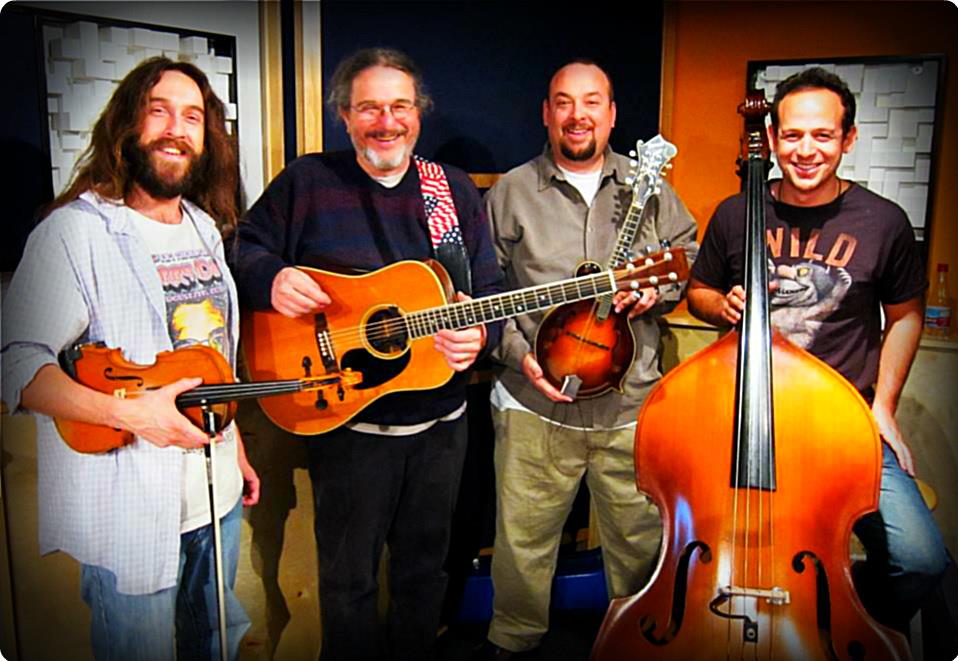
DG: I play my own original music and I toured as a solo artist because I can’t really afford to take a band on the road, but I love playing music with other people, and I jam a lot around here. I ran into a really fine mandolin player by the name of David Thom, he’s a bluegrass player here in the Bay Area. He sent me one of his albums several years ago and it had a really great cover of “Ship of Fools” on it. So I played that on the radio a few times and I finally ran into him some place…at some jam. We really hit it off, and I said, “Boy, it’d be really fun to get together with you and play GD music with you,” and he liked that idea. I put together an acoustic thing for a show at a venue here called The Starry Plough, and I invited him and a young bass-player named Roger Sideman who I’d heard with a Dead tribute band from Santa Cruz called The China Cats. We had another guy sitting in on guitar, and we had a drummer, and we had a fun time playing—an acoustic group of us. So I said to David, “Let’s do this; let’s make a band, let’s have some fun with this.” He liked the idea, so we started trying to think, “Well, who will be get? We need a fiddle player for this if we’re going to do, sort of, bluegrass orchestration.” As it happened, at the end of 2011, I played two shows with The Fall Risk, a band fronted by Jeff Pehrson, one of the singers in Furthur who is a dear friend of mine. I opened two shows for The Fall Risk, and he had a fiddle player in his band at this point, a wild-man named Fiddle-Dave, and I had heard of him and had a conversation with him and I knew he was into the Dead, so I called David Thom and I said, “I’ve got our fourth guy. Let’s do this thing with Fiddle Dave.” So, we had four guys: David Thom on mandolin, Fiddle Dave on fiddle, Roger on bass and me on guitar—and everybody sings. So I had an inspiration and I said, “Let’s record, instead of rehearsing in somebody’s living room and then having to take a month to get a recording session together, let’s be confident that this band is going to sound good and all invest in a recording session.” So we had our very first rehearsal in a studio here in my neighborhood called Megasonic—it’s run by a wonderful engineer named Jeremy Goody—and we got releasable material that day. Also, they had started a Dead covers project on Deadnet, and I had come up with a new arrangement of “New Speedway Boogie,” sitting with my guitar after dinner on Christmas day at a friend’s house. I used that as kind of a core object for the band. I taught these guys the new arrangement and I hired a videographer to come in and shoot us performing that song because I wanted to enter it in The Dead Covers Project. We just played whatever came into our heads. We had a nice, long recording session. We had a bunch of different songs: “Cassidy,” we did David’s arrangement of “Ship of Fools” and various other things, just to get a feel for it. We did three takes of “New Speedway Boogie,” with the videographer shooting, and we chose which one we were going to keep. We finished that one and he used the footage of that, plus he used the other takes as B-roll. So he put together what looked like a nice, multi-camera shoot of Sycamore Slough String Band doing “New Speedway Boogie,” and entered it in The Dead Covers Project, but of course, we didn’t win because I’m so well connected that it would have been a total scam. (laughs) If I had won, people would have screamed bloody murder. We knew we weren’t going to win. It wasn’t appropriate for a connected guy like me to win this contest. But we entered it and we got a lot of views on the video clip, and it’s still up there on Youtube. Search for Sycamore Slough String Band and you’ll find a really nice video of us doing “New Speedway Boogie.” And that was the launch of the band. We played at TRI Studios in April, we headlined the Freight and Salvage in the fall, played a bunch of gigs at other places in between, and we’re off and running with a booking agent. We’re starting to get festival bids this year, and it’s just fun. We do GD, but we also do “Midnight Moonlight” by Peter Rowan, we’ve worked up a couple of my original tunes, and we’re going to expand it. The First Rehearsals CD has a jam that goes from “Cassidy” into “Within You, Without You” by George Harrison from Sgt. Pepper and then jams into a Bob Dylan song, “I’ll Be Your Baby Tonight.” So it’s not strictly a GD thing. It’s officially an acoustic, GD tribute plus. It’s just great fun, and I hope we can get it out on the national stage, but the economics of touring are so…it’s possible for me to fly out to a festival with some cds, then come home and be a few bucks ahead; it’s really hard to do that with a quartet—four plane tickets, two hotel rooms, four sets of meals—it’s just really hard to break a new band. We’re not Yonder Mountain (String Band). Yonder Mountain will get $20,000 to play a festival, and we are lucky to get $2000, which is not enough. We’re expanding as fast as we can, but it’s really hard to do because of the economics of show biz. I’ll be continuing to tour as a solo and we’ll go out—I think we’re going to play a festival in Utah in June, so we might do a little tour culminating around that festival—we might play in Reno. It’s purely for love, and secondarily for a little bit of money, and we’re hoping we can make a go of it.
GW: So when you’re out with Sycamore Slough, you’re mainly doing shows close to home in the Bay Area?
DG: Yes. Everything we’ve done so far has been within a day’s drive of the Bay Area. We’ll expand.
GW: What do you have planned for 2013 in terms of touring?
DG: My 2013 schedule is just beginning to take shape. I’m going to Florida next month to play six shows in five days with The Electricians. There’s a terrific guitarist from Tampa named John Zias, who I met on Dead.net, or the old Deadnet Central, that is. He’s a really, really great guitarist. We played a few dates together a year and a half ago and just really found a connection musically. He’s got this band called The Electricians, and I’m going out to tour with them. I’ll play with them as my backup band, and they’ll play a set of their own, and that’s just a week tour in Florida. After that I’m going to play The Dark Star Jubilee on Memorial Day weekend in Ohio. I expect that I’ll be at The Gathering of the Vibes in July, but it hasn’t been made official yet. And I don’t know about the rest of the year.
Right now I’m trying to finish a book, and I’m working on two charity events this weekend, so I’m kind of crazed with getting stuff done, and I’m not putting a lot of energy into my booking at the moment. Saturday I’m doing my annual KPFA Grateful Dead Marathon—
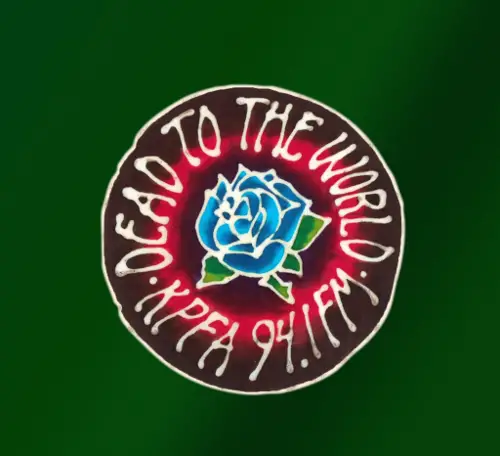
GW: In it’s 27th year this year.
DG: Yes, I started doing stuff in 1986 with KPFA, but this is now 16 hours. I’ll be on the air from 9am PT to 1am playing GD tapes, Sycamore Slough is going to play live, I’m expecting some fresh material from the Mickey Hart Band, and we’ll see what else happens, but it’s a fundraiser for KPFA which is my hometown station. It will be webcast via gdradio.net and nugs.net and KPFA.org, so all of your listeners everywhere can tune in, and I hope they’ll contribute as well. I’m also auctioning off…a bunch of photographers have sent me some wonderful photos and I’m auctioning them off on Facebook. So if you go to Facebook and search KPFA Grateful Dead Marathon, you’ll find a link to the auctions, and there’s Rosie McGee, Bob Minkin, Ed Perlstein—a bunch of great photographers that have given me some really great photos to auction off. The auction is going to run through March 6th. And then on Sunday, I’ve organized a benefit at the Ashkenaz—we do these tribute concerts about three times a year, and on Sunday we’re doing a tribute to George Harrison. Because the Ashkenaz is not non-profit, we do these things to keep it running so that we can play there. So, my plate is full this week with getting my regular work done, getting ready for these two charities, and maybe next week I’ll get back to booking.
GW: David, I just want to again say “thank you,” for you being out on tour and sharing your own personal music with the world. It’s great to see you out there. And also for being such an instrumental player in the Grateful Dead legacy—hosting the shows and writing all that great things that you write—the community really considers you such a vital part of that scene.
DG: I have to say that it’s been a privilege and an honor and an absolute thrill to be doing this all these years—to be able to make a living doing music related stuff that doesn’t harm anybody, as far as I know, and to do stuff that brings joy to so many people, myself included. It just doesn’t get much better than that.
GW: Living the dream!
DG: Yeah.
GW: We look forward to the marathon this weekend, and we’ll keep an eye on your website to stay tuned in to what you’re up to.





